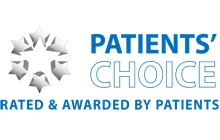Ovulation induction and superovulation are used to increase the number of eggs that develop in a monthly cycle
Ovulation induction and superovulation medications are used to stimulate the follicles (that house the eggs) in the ovaries in order to predictably enhance egg development during the menstrual cycle. Other medications that control the time that a patient will release the egg or eggs (ovulation) are also used so that intercourse or intrauterine insemination can be timed appropriately to best enhance a patient’s chances of achieving a successful pregnancy.
What is ovulation induction?
Ovulation induction is a technique used for women who do not ovulate regularly or at all. Using this technique, a single follicle (and hence a single egg) is recruited by fertility medications (oral or injectable) in order to help a woman conceive.
By recruiting only one egg, multiple pregnancies are avoided. Since, in these patients the issue is ovulation, only one follicle is needed.
What is superovulation?
Superovulation is performed when a woman ovulates regularly. In these patients, fertility medications are used to recruit the growth and development of multiple ovarian follicles. The probability of achieving a successful pregnancy is subsequently enhanced since multiple eggs are available to be fertilized.
Testing and medications associated with ovulation induction and superovulation
Patients undergoing ovulation induction and superovulation are closely monitored by blood tests and ultrasounds. Careful monitoring minimizes the risks of multiple births (by adjusting the dosage of a patient’s medication so the appropriate number of ovarian follicles develop) as well as ovarian overstimulation (hyperstimulation). When the eggs are deemed mature, an injection of human chorionic gonadotropin (hCG) may be prescribed to predictably induce ovulation so intercourse or intrauterine insemination can be timed appropriately.
The medications most commonly used in our practice for ovulation induction and superovulation include clomiphene citrate [Clomid] and tamoxifen (which are orally administered) and fertility medications that are given by injection, such as, Follistim®, Gonal F®, and Menopur®. In some cases, a combination of oral and injectable medications is used to promote ovulation induction or superovulation.
Patients should be aware that there are risks associated with the use of fertility medications for ovulation induction and superovulation. Risks include multiple births as well as the development of ovarian cysts. Ovarian hyperstimulation can also occur. In most cases, ovarian hyperstimulation is mild, resulting in ovarian enlargement, bloating, and mild pelvic discomfort. In rare cases, symptoms can progress to significant pelvic and abdominal pain, nausea and vomiting with subsequent dehydration, and difficulty breathing. Patients are instructed to alert their doctor immediately if any of these symptoms were to arise.
Contact Dr. Levi to discuss the best options for fertility treatment.
Award Winning Fertility Clinic
 |
 |
 |
 |

